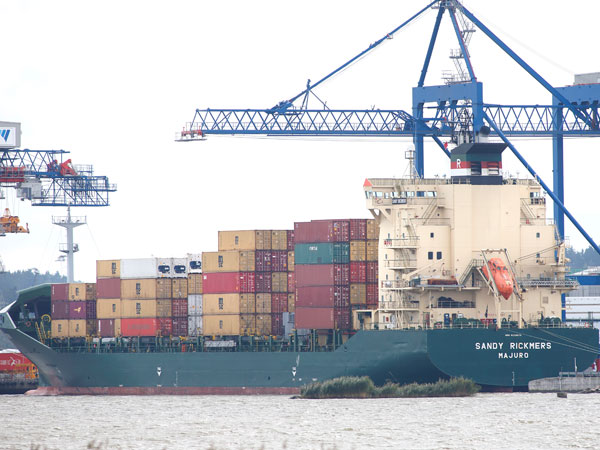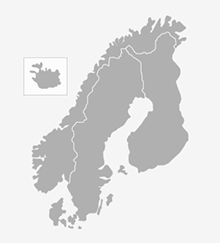Achieving the national and international environmental objectives for maritime airborne emissions requires a combination of new and more powerful policy instruments. The policies already in place are not enough. This is one of the conclusions of a research project, led by VTI, which has now been finalized.
Maritime transport is a major source of emissions of harmful air pollutants and greenhouse gases. Therefore, a research group from VTI and the University of Gothenburg has analysed which policy instruments and measures can reduce maritime transport emissions to the air in a cost-efficient way. The work has been carried out in a project called “Carrots & sticks in maritime transport to achieve environmental quality objectives”. Vinnova and the Swedish Transport Administration have funded the project.

Photo: Hejdlösa Bilder
“The aim of the project has been to develop recommendations for Swedish decision makers and stakeholders. We have studied which policy instruments can contribute in a cost-effective way to the fulfilment of four of the Swedish environmental quality objectives Reduced climate impact, Clean Air, Natural acidification only and Zero eutrophication and the climate goal regarding international shipping set up by the International Maritime Organization IMO,” says Inge Vierth, project leader at VTI.
One conclusion of the Carrots & sticks project is that a better monitoring tool is needed. Such a tool should be used to follow up the impacts of implemented policies and measures and to develop future scenarios. Another conclusion is that a combination of different policy instruments and measures is needed to achieve the Swedish environmental quality objectives and IMO’s climate goal.
Monitoring and forecasting of emissions caused by maritime transport
The basis for monitoring and forecasting airborne emissions caused by maritime transports needs to be improved. There are shortcomings related to the documentation of the official statistics, for example regarding to the transparency to the applied methods. Now, it may be difficult to determine the factors to explain that some emissions increase or decrease from year to year.
Today’s instruments are not sufficient
The Swedish environmental quality objectives will not be achieved with the policy instruments that are implemented today. The calculations carried out within the Carrots & sticks project show that the Swedish climate objectives 2030 and 2045 will not be achieved in the four different “business as usual (BAU)” scenarios.
Additional and more powerful instruments
A combination of different policy instruments and measures is needed to achieve the Swedish environmental quality objectives. With regards to the reduction of greenhouse gas emissions the Carrots & sticks project for example proposes that Swedish stake holders work to ensure that the maritime transport sector is included in the European Emissions Trading System (EU ETS) or a similar global trading system. The possibilities to reduce the greenhouse gas emissions by reducing vessel speed are discussed as well.
In order to reduce emissions of nitrogen oxides (NOx) a Nordic or European NOx fund is proposed to give incentives for investments in catalysts and other technologies.
A further recommendation, concerning both the national and international level, is to study how to improve the design of the Swedish environmentally differentiated fairway dues and port fees. Consideration should also be given to how these charging systems can be coordinated at a national and international level in order to reach more vessels and provide greater environmental incentives than today.
“We also recommend more research and development projects regarding the use of different types of renewable fuels and electricity,” says Inge Vierth.
Read more about the “Carrots and sticks project” on the VTI project website:
 Contact:
Contact:
Inge Vierth
inge.vierth@vti.se
VTI, Swedish National Road and Transport Research Institute






Follow us: